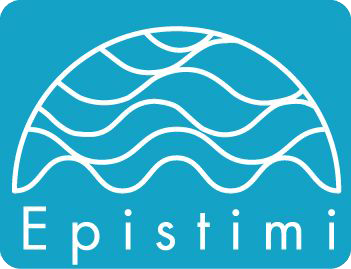Why and how I co-authored the comment “Sexism in academia…”
This comment addresses the costs of gender-based discrimination and harassment to science and society. It calls for the implementation of measures at multiple levels, including at the level of academic institutions, government funders, and research funding agencies.
By Janet G. Hering
9 January 2024, DOI: 10.5281/zenodo.10439078
In late November 2023, the comment “Sexism in academia is bad for science and a waste of public funding” was published in Nature Reviews Materials (NRM). Although the down-loadable version [1] of the comment is available only to NRM subscribers, a read-only version [2] and the supplementary information [3] are freely available.
Over our academic careers, my co-authors Nicole Boivin, Susanne Täuber, Ulrike Beisiegel, Ursula Keller and I had either observed or experienced the phenomenon of highly-trained, high-performing female researchers being made unwelcome in their academic institutions. In some cases, women were forced out of their home institutions or even out of their professions. Individual women were denied the rewards of their investment of time and energy in their education and training, while society and science also incurred costs. In OECD countries, an average of 1.5% of GDP is invested in tertiary education with two-thirds derived from public funding [4]. Taxpayers thus have a valid interest in recouping their investment through the long-term productivity of individuals, both female and male, in higher education and research institutions (HERIs). Society also needs diverse perspectives to address pressing global challenges; as Albert Einstein said, “We cannot solve our problems with the same thinking we used when we created them.”
In our comment, we wanted to focus attention on steps that could (and should) be taken at multiple levels to combat gender-based discrimination and harassment. Foremost among these measures are increasing transparency and accountability and improving governance, especially within HERIs. As we, and many others, have noted, research funding agencies and professional associations can play a powerful role, since they do not have to protect the (short-term) reputation of any individual HERI. Government funders have a responsibility to tax payers to ensure that tax expenditures are not wasted through sexism, which we highlighted as “one of the biggest sources of public funding inefficiency”.
But how did our group of co-authors come together to write this comment? Only two of us, Ursula Keller and myself, knew each other through our affiliation with a common HERI. Ursula and I have been colleagues and friends for over a decade. In 2012, we co-founded the ETH Women Professors Forum [5]. Through Ursula, I learned about the difficulties that Nicole Boivin was facing regarding her position as Director of a Max Planck Institute. As Nicole’s situation was being exposed in Science magazine [6], Ursula and I initiated a signature campaign for an open letter to the Max Planck Society (MPS) [7], which was signed by 145 prominent female scientists and delivered to members of the MPS Senate in November 2021. Our co-author Ulrike Beispiegel was a member of the MPS Senate at that time. The issues raised in the open letter were covered in Nature [8] and other media outlets.
It was also through Ursula that I came to know Susanne Täuber, who was dismissed from her post as a tenured professor after publishing an article critical of her university’s gender equality policy and filing a discrimination complaint against her employer [9]. In 2022, Susanne, Ursula, and I co-authored the correspondence piece “Academic harassers are protected with public resources” [10] with Morteza Mahmoudi, the founder of the Academic Parity Movement (APM) [11] and author of numerous articles on bullying and harassment in academia, which are available on the APM website. Susanne, Ursula, and I all serve as advisors for APM.
With our comment in NRM, my co-authors and I hoped to increase the awareness of the systemic nature of gender based discrimination and harassment in HERIs and to mobilize action to ensure that women and under-represented minorities have the opportunities for advancement and success that they deserve. This was also the motivation for me to establish this blog series on the Epistimi website with my co-editor Patricia Maurice. As we wrote in our inaugural post [12], our “blog series [is] intended to serve as a forum for senior women to provide advice, insight, and fellowship to one another.” We hope that our readers will participate actively in this forum.
In closing, here are a few questions to stimulate further thought, discussion, and action:
· Do you have suggestions for topics of future posts (including your own experience as a leader in STEMM or in the establishment of an initiative to support women in STEMM)? If so, please write to us at: epistimiblog@gmail.com
· If you have experienced gender-based discrimination or harassment in academics, how did you deal with this? Do you have any effective measures or strategies to suggest to others?
· If you have observed gender-based discrimination or harassment in academics, were you able to intervene or otherwise support the target? If so, how?
SPECIAL NOTE: Don’t forget to scroll down to the bottom of this page to sign up for the Epistimi e-newsletter.
Notes and references cited
[1] Subscription version: https://www.nature.com/articles/s41578-023-00624-3
[2] Read-only version: https://rdcu.be/dr8hx
[3] Supplementary information: https://static-content.springer.com/esm/art%3A10.1038%2Fs41578-023-00624-3/MediaObjects/41578_2023_624_MOESM1_ESM.pdf
[4] https://www.oecd.org/education/education-at-a-glance/
[6] Curry (2021) Max Planck Institute demotes noted archaeologist, Science, SCIENCEINSIDER, https://www.science.org/content/article/max-planck-institute-demotes-noted-archaeologist
[7] https://www.500womenscientistsfribourgbern.ch/lettertotheleadershipofmpg
[8] Abbott, A. (2021) Scientists question Max Planck Society’s treatment of women leaders, Nature, 600: 20 https://www.nature.com/articles/d41586-021-03492-5
[9] Gulland, A. (2023) University of Groningen faces growing calls to reinstate sacked gender-equality researcher, Nature Career News, DOI: https://doi.org/10.1038/d41586-023-01286-5
[10] Täuber, S., Hering, J., Keller, U., & Mahmoudi, M. (2022). Academic harassers are protected with public resources. eClinicalMedicine, 52, 101588, https://doi.org/10.1016/j.eclinm.2022.101588
[11] https://paritymovement.org/
[12] https://www.epistimi.org/blog/a-little-less

